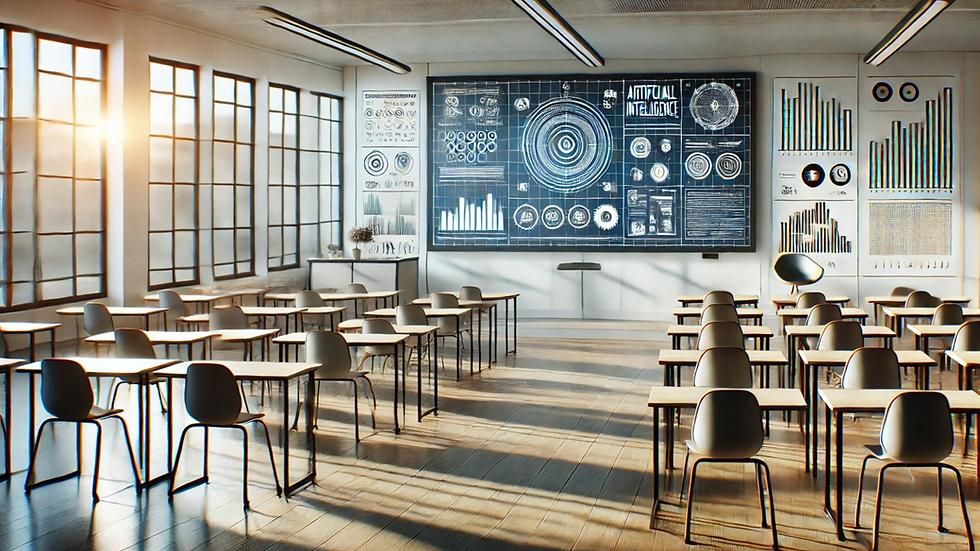Empty classrooms due to AI: a new era of learning?
- team7551
- Jul 16, 2024
- 3 min read

DIGITAL REVOLUTION IN THE CLASSROOM: WHERE ARE THE TEACHERS?
The digital revolution has changed our world and redefined the way we live, work and learn. Artificial intelligence (AI) has found its way into many areas, and education is no exception. But will AI really mean that one day our classrooms will be empty?
In the education sector, AI refers to the use of technologies that simulate human thinking to improve learning processes. Examples include adaptive learning software, virtual tutors and intelligent assessment systems. These technologies adapt to the individual needs of students and offer more opportunities for personalized learning paths.
HOW IS ARTIFICIAL INTELLIGENCE CHANGING EDUCATION?
AI technologies, including adaptive learning software and virtual tutors, have the potential to revolutionize the education sector. These technologies adapt to the individual learning needs of students and provide customized educational pathways. By personalizing learning, teachers can use their time more effectively by automating routine tasks such as grading tests and managing classrooms. This allows for deeper individualized support for students, as there is more time for personal interactions. AI changes the role of teachers from a pure knowledge provider to a mentor and guide in the learning process.
In addition to the personalization of learning, AI is expanding access to education. Online learning platforms and virtual classrooms make educational opportunities globally accessible, regardless of geographical or socio-economic restrictions. However, the integration of AI also brings challenges. Privacy and data security are key concerns, as students' personal information must be protected. (Read our blog post on data ethics).
WHAT WILL THE CLASSROOM OF THE FUTUR LOOK LIKE?
The classroom of the future is likely to be a hybrid learning environment, combining traditional teaching methods with advanced AI technologies. Virtual and augmented reality could also play a greater role, providing immersive learning experiences that go far beyond what is possible in a traditional classroom. Teachers and AI will work together to provide students with a high-quality, personalized education.
Although AI has the potential to revolutionize learning, the question is whether all students can benefit equally. Access to technology is a crucial factor. Students in low-income areas or in developing countries may not have the same access to AI-powered learning resources as children of the same age in more affluent regions. Therefore, it is important to ensure that educational reforms that rely on AI also address issues of equity.
WHAT THIS MEAN FOR THE FUTUR OF EDUCATION?
The future of education is undoubtedly exciting and full of possibilities. The integration of AI promises a more personalized, efficient and inclusive learning environment. But to realize this vision, educational institutions, governments and technology companies must work together to overcome the challenges and ensure that all students have access to the benefits of AI-powered education. It will be crucial to find a balance between technological innovation and human interaction to ensure a holistic and equitable education.
Although AI has the potential to revolutionize education and change the way we learn, it doesn't necessarily mean that our classrooms will be empty. Instead, AI is likely to help transform the classroom and create new opportunities for learning. The future of education may be uncertain, but one thing is certain: AI will play an important role in shaping that future.
STAY UP TO DATE IN THE FIELD OF AI AND EDUCATION!
Receive valuable tips, exciting articles and exclusive content about AI and its use in the classroom on a regular basis.

Comments